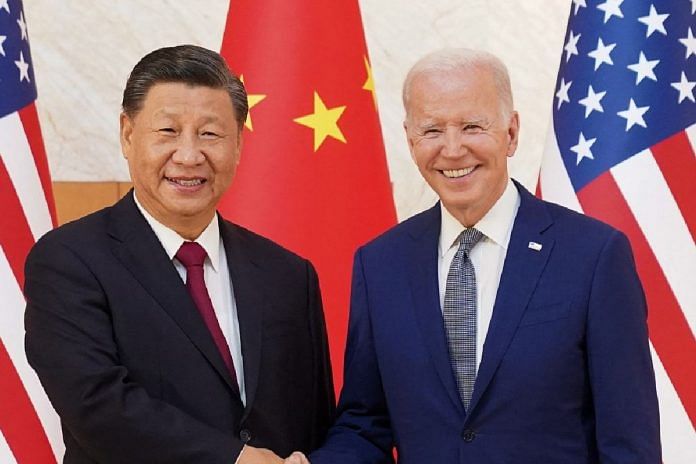New Delhi: Naming China the “broadest”, “most active” and “most persistent” threat to the US government and private sector networks, the Joe Biden-led US administration has released its first National Cybersecurity Strategy, where it accuses Beijing of “digital authoritarianism”.
The National Cybersecurity Strategy 2023, which will replace the 2018 policy introduced by former president Donald Trump, also accuses China of developing cybersecurity threats beyond alleged intellectual property theft.
“China now presents the broadest, most active and most persistent threat to both government and private sector networks,” states the policy.
Beijing is “exporting its vision of digital authoritarianism, striving to shape the global Internet in its image and imperiling human rights beyond its borders,” it added.
The Chinese government has not yet responded to the new policy and its claims against Beijing.
The policy, released by the US State Department on 1 March, comes amid heightened US-China tensions over the spy balloon incidents last month that prompted US Secretary of State Antony Blinken to cancel a state visit to China.
The policy was published during the G20 Foreign Ministers’ Meeting in Delhi where Russia and China locked horns with the US and its allies over discussions about the Ukraine war.
The 39-page document provides a framework for new laws and regulations aimed at helping the US government counter emerging cybersecurity threats, especially ransomware. It comes in the backdrop of US sanctions against Russia, which it believes was responsible for the December 2020 cyberattack on IT company SolarWinds.
Also, in May 2021, a suspected ransomware attack on the largest fuel pipeline in the US led to brief supply shortages on the East Coast.
Also Read: G20 finance ministers’ meeting is marred by Russia-Ukraine conflict, says Antony Blinken
‘Quad, IPEF allies helping counter cyber threats’
Apart from China, the National Cybersecurity Strategy 2023 names Russia, Iran and North Korea as posing serious cyber threats to the US. It also accuses the three countries of providing “safe havens” to ransomware actors.
The policy, however, does not mention Israel or Pegasus, a malicious software developed by Israeli cyber-arms company NSO Group, which was reportedly used by governments across the world to spy on their own citizens and other heads of state.
The document names the Quad and the Indo-Pacific Economic Framework (IPEF) as among the mechanisms through which the US is working with international allies to counter cyber threats. India is a partner to both the Quad and IPEF.
“Through mechanisms like the Quadrilateral Security Dialogue between the United States, India, Japan and Australia, the United States and its international allies and partners are advancing these shared goals for cyberspace…,” reads the policy.
“The Indo-Pacific Economic Framework (IPEF)… create[s] opportunities for the United States and regional governments to collaborate in setting rules of the road for the digital economy…” it adds.
Information sharing between computer emergency response teams, developing a digital ecosystem based on shared values and rules, and enabling cross-border data flows are some of the ways the US is collaborating with allies to counter cyber threats, states the policy.
(Edited by Anumeha Saxena)
Also Read: At G20 Foreign Ministers’ meet, China bats for its peace plan for Ukraine



